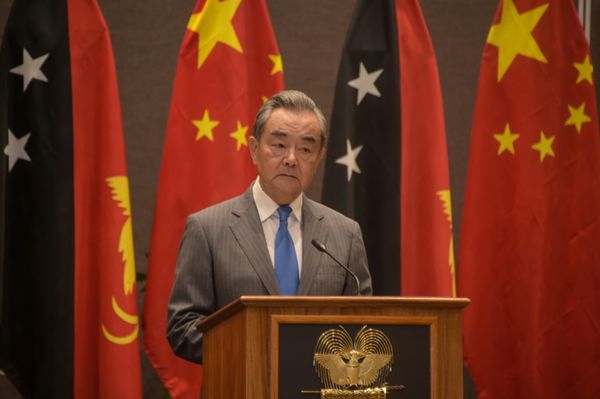
On Wednesday this week, the New South Wales lower house passed an affirmative consent bill, which could see the Crimes Act changed to specify that consent to sexual activity must be communicated and not assumed. The next day, Sydney’s Griffin Theatre Company opened Wherever She Wanders, a play by award-winning Australian playwright Kendall Feaver, which explores the complex failures of systems, movements and individuals to protect us from sexual harm.
Set in a residential college on the grounds of an Australian university, the play’s catalyst is an incident that, it would be argued in courts, operated on inferred or assumed consent.
But Wherever She Wanders is not interested in the specifics. Instead, it pulls back to examine the ways that rape culture thrives in closed systems like once-single-sex colleges, where songs about rape and objectification are revered like choral hymns and preserved in lovingly-made songbooks.
Nikki Faletau (Emily Havea) attends the college on a full scholarship and has made a habit of calling out these old, troubling behaviours whenever she sees them – much to the consternation of Jo Mulligan (Fiona Press), the first-ever woman in charge of the college. Jo, a second-wave feminist who has “gotten over” her activism, sees many of Nikki’s complaints as over-sensitive and over-dramatic.
But when something happens to sweet fresher Paige Hutson (Julia Robertson) on her first night in residence, Nikki can’t let it go – and she won’t let Jo dismiss it, either.

Feaver began writing the play nine years ago, but in late 2021 it lands squarely in the zeitgeist, coming just one month after Diana Reid’s debut novel Love and Virtue: a novel which also examines rape culture in Australian residential colleges, through the lens of a girl who has a murky sexual experience on her first night, and whose more progressive friend takes the story viral. Both book and play refuse to moralise; both find the meeting of ego and social justice measures worrying. Both writers are more interested in complicating our thinking around call-out culture, social justice movements and systemic failures than they are in personal, singular experiences.
Feaver especially refuses to offer any answers for a better way to handle sexual assault and discrimination, preferring instead to demonstrate how it looks, how it thinks – how it acts. What gets a little lost in the shuffle, however, is how it feels.
We spend time with Nikki – understanding her fear and anger and commitment to speaking out – and with Jo’s complex discomfort about the whole situation. Nikki’s entire experience at the college is doubly fraught as a woman of colour in a predominantly white institution, but while Nikki uses Paige’s more palatable experience (Paige is pretty, and white, and innocent) to advance her agenda, the playwright Feaver leaves Paige behind too. We go where Feaver wants to go, and stay grounded in ideas far more than in character, emotion or human experience. How much this will work for individual audience members will vary.
But Feaver has director Tessa Leong as her bridge from idea to lived truth, and Leong digs deep into Feaver’s clever and well-researched script, steering her enormous ideas and prowling debates into a deft and stylish production with a natural and satisfying rhythm – always seeking to find the humanity and hold it up to the light.
Feaver has a talent for wit, especially to deflect, distract, or muddle with a scene, and Leong ensures that not a single much-needed laugh is missed. Mark Paguio, who plays male student Ghazali – renamed “Gerald” by his white friends – is a real gift to the production, shouldering the majority of the humour and bringing a surprising cache of warmth and vulnerability to his supporting role.
The play straddles physical and online worlds: Paige and Nikki are both gamers and at one point argue in-universe of a fantasy video game, with Paguio and Tony Cogin playing as their avatars in full elf and wizard garb. Ella Butler’s set, simple with a few collegiate adornments and video elements by Susie Henderson, is transformative.

But it’s the unwavering, constantly-flowing energy of Leong’s production that leaves the biggest impression. She balances sensitivity (a potentially triggering photo of an assault is projected onstage as a blurred-out preview) with humour (those disturbing songs are harmonised and remixed in a note-perfect second act opener).
It’s a bold, ambitious play, hungry to debate and argue and complicate. It isn’t comforting or cathartic. But its questions may linger in the back of your mind, prompting you to seek out the answers for yourself.
• Wherever She Wanders runs at Griffin Theatre Company in Sydney until 11 December







